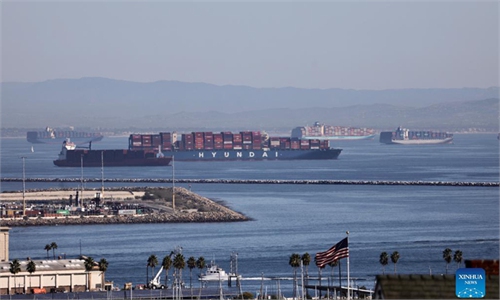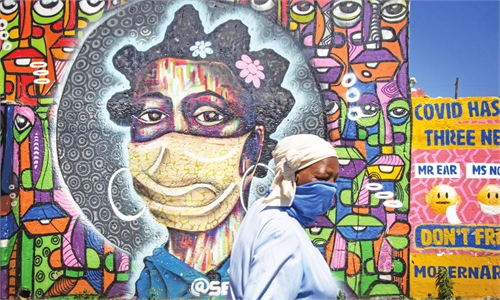WHO warns against travel bans
More countries impose curbs as cases found in Brazil

Visitors wearing face masks walk in the Trajan's Market in Rome, Italy, Feb. 22, 2021. Italy extended an inter-regional travel ban for another month on Monday, as health authorities were increasingly concerned for the circulation of coronavirus variants despite a relatively stable pandemic scenario.Photo:Xinhua
The World Health Organization (WHO) has warned blanket travel bans will not prevent the spread of Omicron, as more countries rushed to impose curbs and the first cases of the new COVID-19 strain were detected in Latin America.In the week since the new virus strain was reported by South Africa, dozens of countries around the world have responded with travel restrictions - most targeting southern African nations.
But the WHO warned Tuesday that "blanket" travel bans risked doing more harm than good.
In a travel advisory, the WHO warned the bans could ultimately dissuade countries from sharing data about the evolving virus.
But it did advise that unvaccinated people vulnerable to COVID-19, including over-60s, should avoid travel to areas with community transmission of the virus.
WHO chief Tedros Adhanom Ghebreyesus said it was understandable for countries to seek to protect their citizens "against a variant we don't yet fully understand."
But he called for the global response to be "calm, coordinated and coherent."
The likely futility of broad travel restrictions was underscored as Dutch authorities reported that Omicron was present in the country before South Africa officially reported its first cases on November 25.
The new variant - whose high number of mutations the WHO believes may make it more transmissible or resistant to vaccines - was found in two Dutch test samples from November 19 and 23, with one having no travel history.
So far, well over a dozen countries and regions have detected cases, including Australia, Britain, Canada, Israel, Italy, Portugal and Hong Kong, China.
Latin America reported its first two cases Tuesday - in people who traveled from South Africa to Brazil - and a first case was confirmed in Japan, one day after it barred all foreign arrivals.
However, US President Joe Biden said the travel bans on just the southern African nations would stay in place, without referencing the other places where Omicron has been detected.
In Asia, governments continued Wednesday to expand restrictions, including with Indonesia adding Hong Kong to its travel ban list alongside various African nations.
AFP



